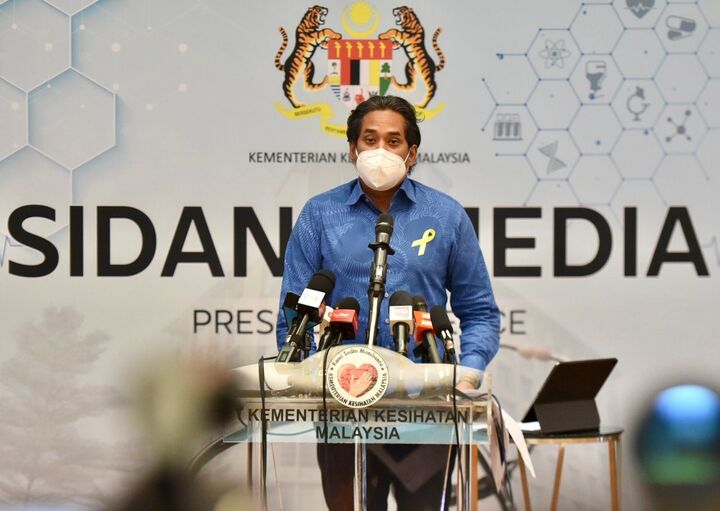KUALA LUMPUR, July 19 — Adults aged 50 to 59 years without underlying health conditions can opt to take a second Covid-19 booster shot, Khairy Jamaluddin announced today.
At the Dewan Rakyat earlier today, the health minister listed the Technical Working Group’s (TWG) latest recommendations of groups who should take the second booster dose of the Covid-19 vaccine to prevent severe disease:
- Individuals aged 60 years and above with comorbidities who are considered to be of high risk
- Individuals aged 60 years and above without comorbidities who have a doctor’s letter
- Senior citizens who reside in long-term care homes
- Individuals ranging from the age of 18 to 59 who are high risk
- Frontline workers
- Healthy individuals aged between 50 and 59 are eligible for their second booster if they choose to take the vaccine in order to protect themselves from the risk of severe disease
Khairy did not state the TWG’s recommendations on the interval for second boosters for adults in their 50s without comorbidities.
Additionally, the health minister said as many as 16,165,730 individuals, a figure last recorded on July 18, have received their first booster dose of the Covid-19 vaccine.
Out of 23,008,641 individuals eligible under the Ministry of Health’s (MOH) guidelines for their first booster shot three months after complete vaccination, 6,842,911 individuals, or 29.7 per cent, have not taken their first booster yet.
In relation to the second Covid booster shot, as many as 225,848 individuals have taken their second booster as of July 18.
As many as 2,519,761 senior citizens (aged 60 and above), who meet the MOH criteria and who have completed the four-month period after the first booster, are eligible for their second booster. Most of them at 91 per cent have yet to take their second booster jab, or 2,293,913 individuals.
Alongside encouraging people to take their booster shots, Khairy outlined MOH’s strategy in controlling the BA.5 variant of the coronavirus, which, according to the health minister, is a more infectious strain than other subvariants of the Omicron variant and which is more resistant to antibodies produced from vaccination.
He disclosed that MOH has:
- Reactivated the National Covid-19 Rapid Response Task Force (RRTF), designed to tackle medical emergency situations, especially when the health care system is put under great strain.
- Introduced the Paxlovid antiviral medication since last April 15 in public health care facilities and since last June 20 in private facilities, an oral Covid-19 medication for high-risk individuals experiencing mild (category 2) to moderate (category 3) Covid.
- Increased the number of individuals who are eligible to take the Covid booster dose in an effort to lower the rate of infection, avoid serious infection, and death.
- Bolstered the Covid digital health care management system via FTTIS (Find, Test, Trace, Isolate, and Support), which requires individuals to key in their Covid test results into the MySejahtera app to get a digital home surveillance order if tested positive.
- Ensured that all Covid-19 Assessment Centres (CAC) that are operating physically or virtually are prepared to take in a high number of patients in order to assess and monitor the condition of those who are confirmed Covid-positive, including recommending treatment with Paxlovid for high-risk patients.
- Monitored the spread of Covid-19 infection through surveillance activities on outbreaks of influenza-like illness (ILI) and severe acute respiratory infection (SARI); whole genome sequencing to identify Covid variants; and wastewater surveillance nationwide.
- Advanced the Agenda Nasional Malaysia Sihat (ANMS) initiative at all levels by empowering individuals to take care of their personal health in preventing infection, like evaluating their health status, complying with treatment regimens, and wearing face masks.








